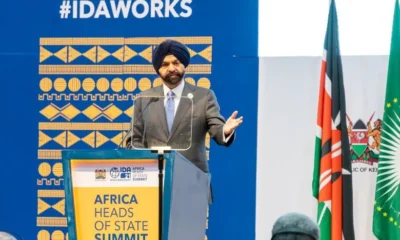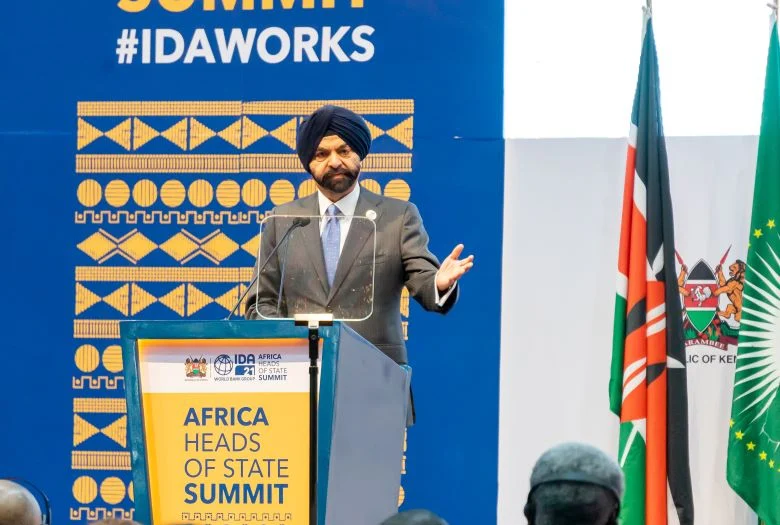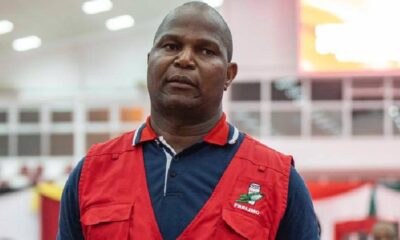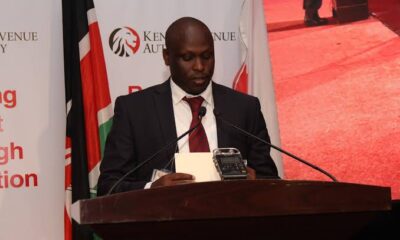While Muhammadu Buhari and honchos of his eight-year ruinous regime busied themselves with a feverish last-minute plunder of the public treasury, Femi Adesina chose to deploy his waning symbolic resource as Buhari’s media aide to hatch a brassy plunder of a scholarly laurel.
In a social media post dishonestly titled “HONOUR FROM ACROSS THE SEAS,” Adesina misled Nigerians into thinking that a UK institution of higher learning had conferred an honorary doctorate on him. “Never thought I would ever have the appellation ‘Dr’ to my name, except if I went to herbal school, as an imminent retiree,” he wrote. “But what did I see? A notification from Learn To Live Business School, United Kingdom.”
There are multiple layers of dissimulation embedded in these two sentences, which I’ll unpack for the undiscerning. First, it is dishonest to call “Learn to Live Business School” (what a name!) a UK institution. It is not. The “school” started life as a consulting firm in Enugu, Nigeria, in 2012, according to its website. In 2016, it became a “business school.”
Note, though, that it has no accreditation from the National Universities Commission (NUC), the unit of government that statutorily accredits degree-granting institutions in Nigeria, and therefore can’t legitimately confer degrees, including honorary degrees, on anybody.
Learn to Live Business School’s only claim to legitimacy is that it has been registered with the Corporate Affairs Commission and that it is “Accredited by The Presidency, Nigerian Council for Management Development (NCMD) in 2020,” according to its website. You can’t make this stuff up! Adesina is the chief spokesperson for the presidency. Now connect the dots. When was the presidency vested with the authority to accredit degree-granting institutions in Nigeria?
Even more curiously, how did an Enugu-based “consulting firm” that upgraded itself to a business school on a whim without approval from the NUC but through the questionable imprimatur of the presidency suddenly become a UK-based institution? The answer is on its website. In 2019, it said, it “registered in London United Kingdom UK Gazette NO.11834639”! That’s it!
A “school” that has existed in Nigeria since 2012 chose to register as a business in the UK seven years later, and it suddenly becomes a “UK institution” whose fraudulent and worthless “honour” is giddily celebrated as coming “from across the seas”! Display of inferiority complex has never been more cringey than this.
Well, Learn to Live Business School lists its London address as “71 – 75, Shelton Street, Covenant [sic] Garden London WC24 9JQ United Kingdom.” When I searched the address on Google, I discovered two oddities. One, they misspelled “Covent” as “Covenant.” How can you not know the address where your “school” is located if you truly live, learn, and teach there?
Two, UK’s Companies House Data says, “There are 553 companies at this address,” which indicates that it’s not a campus. It’s merely an office space that multiple people probably rent to lend locational legitimacy to the businesses they registered in the UK.
But being registered as a business in the UK is not synonymous with being accredited to offer degrees in the UK. Learn to Live Business School is not accredited to offer degrees, whether earned or honorary, in the UK.
According to Stafford Global, “In the UK it is illegal to offer a qualification that is or might seem to be a UK degree unless the University is recognised by the Government (accredited).”
The group adds that “The external body (independent of the Government) that reviews UK universities is called the Quality Assurance Agency for Higher Education (QAA) who will recommend (or renew) accreditation to the UK Government if the University has met stringent quality standards.”
I searched “Learn to Live Business School” in “The OfS Register” (https://www.officeforstudents.org.uk/advice-and-guidance/the-register/the-ofs-register/#/), the database of accredited degree-awarding schools in England, and nothing came up. So, the folks at Learn to Live Business School might have broken UK law by masquerading as a UK institution to award an honorary degree to Adesina.
The fraud is even messier than it appears. For instance, Adesina said, “The investiture was done by Dr Peter Akubo and Dr Nelson Kingsley.” Well, it appears that “Dr Nelson Kingsley” who identifies himself as “the Rector Learn To Live Business School Limited” on LinkedIn doesn’t even have a master’s degree, much less a doctorate.
In both his LinkedIn and LLBS profiles, Nelson lists his “B.Sc Accountancy” from Enugu State University of Technology (ESUT), his ESUT “BUSINESS SCHOOL Certificate in Strategic Resources and Personnel Re-Positioning for Coping with Economy in Recession and Transition,” and his being “Trained by Fela Durotoye (VIP Consult)” as his only qualifications.
Several other names that appear on the “Advisory Board, Faculty and Lead Instructors” page of Learn to Live Business School’s site have “Dr.” prefixed to them even when they don’t claim to have earned a PhD. Maybe they became “Drs” the same way Adesina just did.
This is worse than a diploma mill scam. It’s a multiplex dupery. It would be interesting to know how much Adesina paid for this “honor from across the seas.”
Adesina said he “never thought” he “would ever have the appellation ‘Dr’” to his name. He may if he earns a legitimate doctorate in the future. Being younger than 60 years, he is still too young to give up getting a doctorate. In my university here in the United States, I have taught students in their late 60s and early 70s who retired as successful CEOs of Fortune 500 companies.
In fact, an 81-year-old man graduated from my university this month with a bachelor’s degree. That’s why Hausa people say “Gemu baya hana ilimi,” that is, a beard (symbolizing advanced age) does not impede the acquisition of knowledge.
If Adesina had any shame, he would never prefix “Dr.” to his name simply because Learn to Live Business School (which doesn’t even claim to award bachelor’s degrees) gave him a fraudulent honorary doctorate. Apart from the fact that his honorary doctorate is from an illegitimate institution that has no power to award degrees in Nigeria and in the UK, only people who have earned a PhD, a DPhil, an S.J.D. or J.S.D. (i.e., the Doctor of the Science of Law), an Ed.D., a medical degree, or other earned professional doctorates can legitimately prefix “Dr.” to their names.
The tradition in many universities worldwide is to insist that recipients of honorary doctoral degrees bear their titles post-nominally, that is, after their names. Example: Femi Adesina, LLD h.c. (“h.c.” stands for honoris causa) but NOT “Dr. Femi Adesina” and certainly not “Dr. Femi Adesina, LLD h.c.”
Of course, I am aware that there are many famous doctors who weren’t actually doctors. For instance, Benjamin Franklin, one of America’s Founding Fathers who is known to most of us as that man whose face graces the American 100-dollar bill, insisted on being called “Dr. Franklin” even though he only had honorary doctoral degrees.
Maya Angelou, the prolific and well-regarded African-American poet, was another well-known personage who insisted on being addressed as “Dr. Angelou” on account of the honorary doctorates many universities awarded her. Angelou didn’t even have a bachelor’s degree, but she was deservedly appointed as the first Reynolds Professor of American Studies in 1982 at Wake Forest University on account of her prodigious and inimitable contributions to the world of literature.
Back home, Nnamdi Azikiwe, Nigeria’s first ceremonial president, was and is still addressed as a doctor even though he never earned a PhD, although he started and gave up doctoral studies at Columbia University. Tai Solarin was and still is addressed as a “Dr.” even though he never earned a PhD. Both Azikiwe and Solarin had multiple legitimate honorary doctorates from several universities.
Adesina doesn’t have the gravitas of the people whose names were unconventionally prefixed with “Dr.” even though they only had honorary doctorates. If the title means anything to him, he should enroll at a real university and earn it.
Fortunately, he has inspiration from his immediate family to achieve this. Many of his siblings are PhDs and professors. For example, Professor Olutayo Charles Adesina, a well-respected professor of history at the University of Ibadan, is his full sibling. I am sure he is embarrassed on Femi’s behalf. That’s such a sad way to depart from the seat of power.


 Sports1 day ago
Sports1 day ago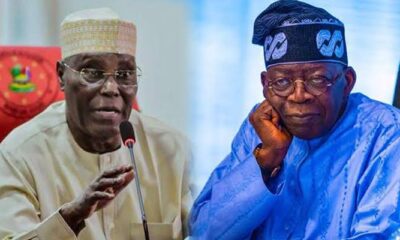
 Metro1 day ago
Metro1 day ago
 Metro12 hours ago
Metro12 hours ago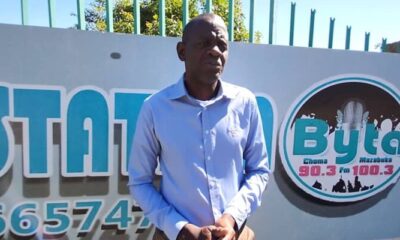
 Metro1 day ago
Metro1 day ago

